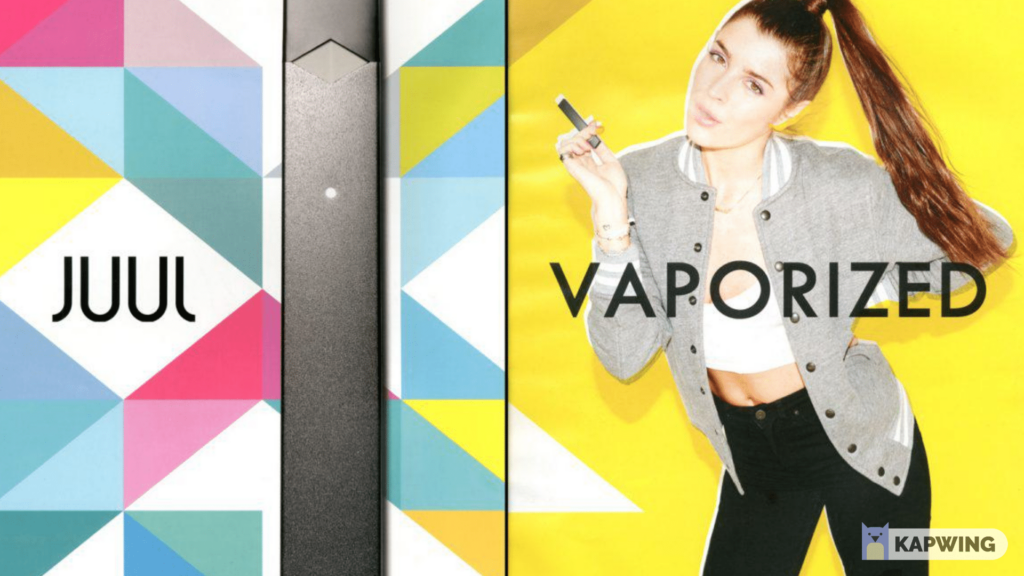The E-cigarette company Juul agreed to a $40 million settlement to pay North Carolina after aggressively marketing to young people with candy colored ads and causing nicotine addiction amongst teens. Attorney General Josh Stein stated, “For years, JUUL targeted young people, including teens, with its highly addictive e-cigarette,” Stein recalled in a statement. “[Juul] lit the spark and fanned the flames of a vaping epidemic among our children — one that you can see in any high school.”

Juul is the notorious e-cigarette brand that produces vapes and nicotine-laced liquid in the form of a USB flash drive. The liquid is vaporized, inhaled, and is proven to be highly addictive, containing more nicotine than some cigarettes. The lawsuit also includes restrictions on products that appeal to minors, and Juul will be required to report yearly paperwork demonstrating their compliance. The makers of Marlboro, the Altria Group, own a 35 percent stake in Juul, and both Altria and Juul did not respond to several outlets’ requests for comments.
One of the most popularized restrictions was the previous banning of certain flavors of Juul pods. CEO K.C Crosthwaite was already forced to pull several fan-favorite flavors for retail store shelves. Flavors including mango, creme brûlée, mint, and cucumber were deemed too appealing to kids.
Juul still faces upwards of 2,000 lawsuits over their targeted marketing encouraging young people to pick up vaping. The new generation almost rid themselves of big tobacco industries after an onslaught of truth commercials and stories from our grandparents. However, because Gen Z wasn’t buying cigarettes, big tobacco companies found a new way to profit from the poor health choices of teenagers. With targeted ads showcasing “cool” teens and the infamous vape, the Juul was the it-girl of 2020 with everyone trying to get their hands on one.

Following the flavor ban on vaping products last year, youth vaping rates did indeed decline, proving the flavor bans effectiveness in combating teenage vaping. With that said, the banning of Juul pods is not stopping the myriad of other brands popping up in its place with packaging and flavors that are blatantly marketed to teenagers.

Juul may be going down, but kids are easily turning to the many other products that might deliver even more nicotine and untraceable ingredients. Users on twitter joke about the lack of information regarding what is in the vapes as they encourage people to not worry about what is in the Coronavirus vaccine if they are vaping juul pods or any other nicotine-laced liquid.
if you’ve ever owned a juul or puff bar, you do not need to worry about what is in the vaccine
— lynsey???????? (@LKatzler) December 17, 2020
ADVERTISEMENT
Introducing the Puff Bar
Puff Bars are the new disposable e-cigarette of choice amongst young people as consumers veer away from Juul. Although the FDA regularly fights against Puff Bar and dozens of other e-cigarette brands they skirt by on technicalities. There are also many fake devices being produced and distributed not by Puff Bar or Juul but steal their packaging. These unknown liquids are increasingly dangerous to consumers of any age as they are untraceable and unidentifiable. The FDA has made several statements about trying to combat the new companies popping up and are currently reviewing of 6.5 million applications from manufacturers of e-cigarettes, cigars and other tobacco products seeking to keep their wares on the market. Users on Twitter also are confused over the ease in which new e-cigarette companies pop up and push out new and exciting kid-friendly flavors.
I wanna know why I can’t buy mint juul pods anymore bcuz they are dangerous but I can buy a strawberry watermelon mango peach blueberry ice puff bar ????????
— tiegan (@tiegzw) June 23, 2021
The Puff Bar is “an extremely popular products,” sayd Bonnie Halpern-Felsher, a developmental psychologist at Standford University. One Puff bar has on average 300 puffs that contain as much nictone as two to three packs of cigarettes. “That’s a lot of nicotine, ” she states, and research shows nicotine is highly addictive and harmful to the developing brains of adolescents.
In 2009 the FDA was granted access over regulating tobacco products. However, Puff Bar and many more e-cigarettes are claiming that they “its products “contain nicotine but do not contain tobacco or anything derived from tobacco.” This further stumps the FDA as nicotine-laced liquids do not fall under their direct jurisdiction to enact regulations.
Even though Juul is on it’s way out of popular culture with lawsuits to their ears, ten more companies have popped up in it’s place including Puff Bar, Suorin, Pop vapes and many more while the FDA is left defenseless … for now.









